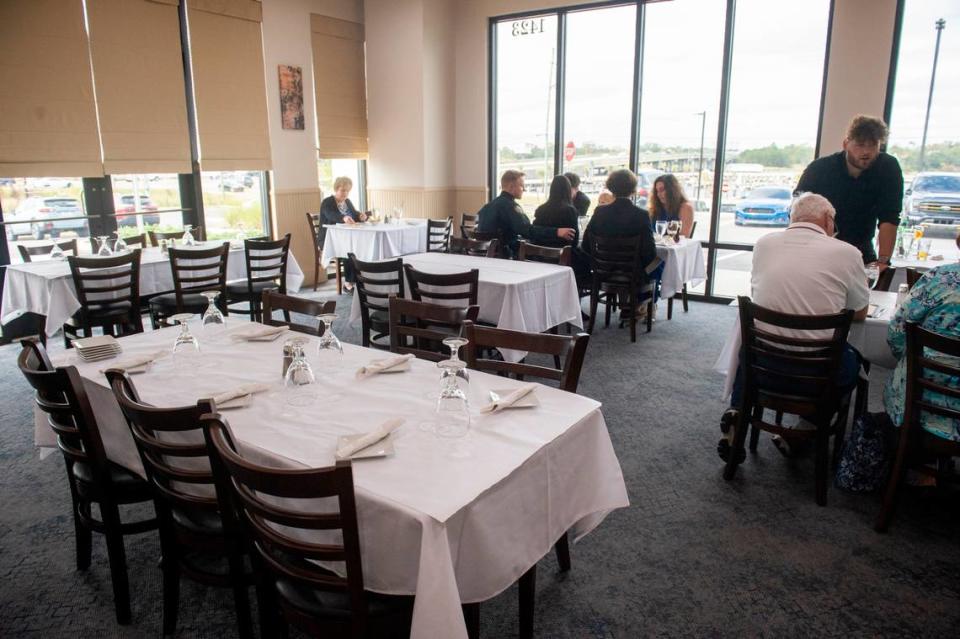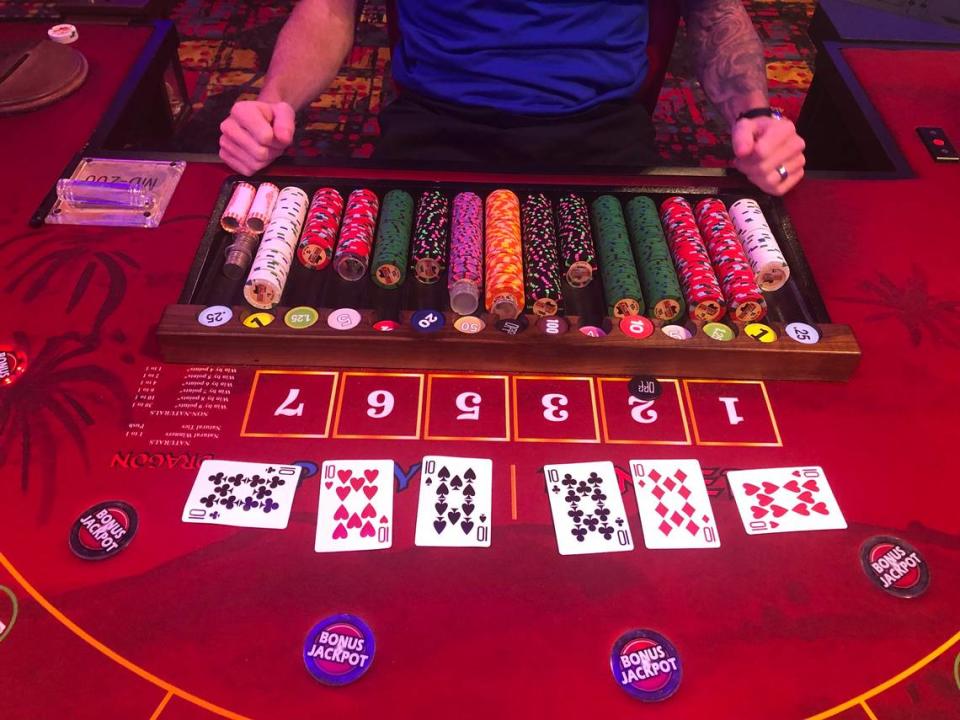Has inflation cut dining out, casino gambling & spending on the MS Coast? Here’s the data.
Inflation, big increases in home insurance rates and other high costs are taking a toll on people’s finances in South Mississippi, but is it forcing them to cut back on their spending?
“The truth is the economy is doing much better than you think it is,” Peter Ricchiuti, a business professor at Tulane University, told members of the Gulf Coast Business Council at the annual economic outlook last week at the Beau Rivage Resort & Casino.
Considering the strength of the stock market over the last year and other factors, “I don’t think we’re having a recession,” he said.
Here’s a look at how the Coast economy is faring — and the big red flag that could derail the Gulfport-Biloxi metro and national economy.
Is spending up or down on the Coast?
Spending is up across South Mississippi, according to the April report from Mississippi Department of Revenue. Tax diversions — the portion of sales tax shared with the 12 Coast cities — increased by $147,000 in April compared to last year.
Sales tax diversions from the state to the 12 Coast cities are nearly $2 million ahead of the last fiscal year that ends June 30. Gautier and Moss Point are the only two cities on the Coast to see a dip in collections this year.
South Mississippi outperformed the rest of the state by 5% more in sales tax diversions, said Jamie Miller, president and CEO of the Gulf Coast Business Council.
The increase is a combination of more spending and higher prices for food and other expenses. This results in higher sales tax paid — especially on food..
While the nation’s overall inflation rate is dropping, the cost of groceries continues to be high. Food prices increased by 11.4% from 2021 to 2022 and are up 7.7% in April.
Are we still dining out on the MS Coast?
Anyone who stood in long lines that stretched out the door at Kilwins ice cream and candy shop in Ocean Springs on opening weekend knows South Mississippi still craves new dining concepts.

Coast residents and visitors are still dining out, and collectively spending more than last year for the experience.
Three Coast cities collect an additional 2% sales tax at restaurants to help fund recreation and other programs. The additional revenue is reported by the Mississippi Department of Revenue, providing a way to track dining trends.
Ocean Springs has collected $117,500 more this fiscal year in restaurant tax from July through April, Pascagoula $37,750 more and Moss Point $46,700 more than last fiscal year.
The big red flag: credit card spending
The U.S. economy is 70% consumer spending, Ricchiuti said.
Yet while people continue to shop and go out to eat, reports show they are paying for these luxuries and higher household expenses with credit cards.
Disposable personal income increased $79.4 billion (0.4%) in April, according to the Bureau of Economic Analysis, while consumer spending increased $151.7 billion (0.8%), showing Americans continue to spend faster than they earn.
Mississippi has the fourth lowest average credit card debt at $6,035, compared to Connecticut with the highest at $9,408.
Reports show:
▪ Americans now have have $986 billion in credit card debt, according to Lending Tree
▪ 56% of all credit card accounts carry a balance, financed by record-high interest rates
▪ Consumers added an all-time record $180.3 billion in new credit card debt during 2022
▪ They added $85.8 billion in just the fourth quarter, the biggest quarterly increase ever
▪ The annual increase in credit card debt of 17% compares to 3.5% pre-COVID.
Ups and downs in spending
People have modified their spending slightly when it comes to gambling in casinos and buying lottery tickets.
Casinos had a strong start to the year. Gross Gaming Revenue was $9 million ahead of last year in January and February, but most of that was given back in March, despite March Madness.
April showed a rebound in revenue, and now the 12 Coast casinos are $5 million ahead this year compared to the first four months of 2022.

Sports betting at the 12 Coast casinos dropped to $19.1 million in April compared to $23.5 million a year ago. The win percentage for the casinos was 13% compared to 11% last year.
“It has been going down,” Mississippi Gaming Commission Executive Director Jay McDaniel said of the amount wagered. Louisiana went live with sports betting around the time of last year’s Super Bowl, he said, and the competition has continued to impact sports betting revenue at Coast casinos.
Louisiana allows online bets, while Mississippi requires wagers to be made within one of the casinos. Mississippi Legislature passed HB 606 to create a task force to study online sports betting and if it should be legalized in the state.
Are we feeling lottery lucky?
The amount people spend on lottery tickets ebbs and flows, says Meg Anniston, director of communications for Mississippi Lottery Corp., and they are buying slightly fewer lottery tickets this year than last.
Mississippi Lottery Corp. transferred $9.5 million to the state in April, down from $11.7 million in April 2022.
Since July 1, the transfer to the state general fund is down slightly to $104 million from $107 million the prior year. Those who play the lottery can justify their purchases with the contribution to the state. The first $80 million in lottery revenue each year goes to roads and bridges and any revenues above that to the Education Enhancement Fund.

 Yahoo Sports
Yahoo Sports 